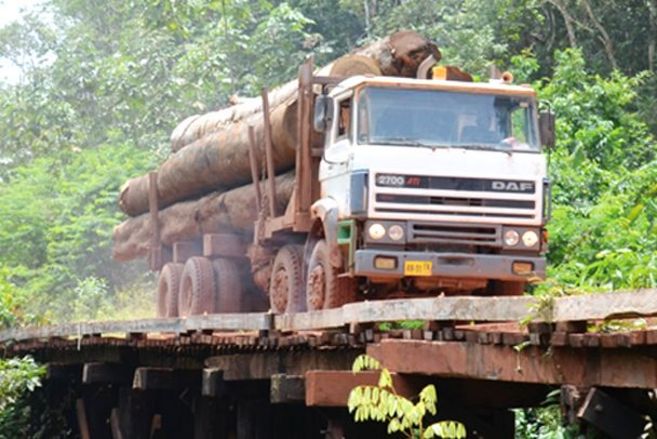Project
Institutional economic analysis - (small-scale) private forest

Institutional economic analysis and approaches to improve organization and management in small-scale private forest
In the research project, the framework for the management of small-scale private forests is to be investigated. The aim is to make recommendations for its further development.
Background and Objective
Of Germany's 11.4 million hectares of forest, 48% are privately owned. The largest share of this is made up of small-scale private forests with areas of less than 20 ha. The cultivation of these areas is often omitted, as it is hardly worthwhile from the perspective of the SPFO. In the joint project "Institutional economic analysis and approaches to improve organization and management in small-scale private forest (InA-PW)", the Thünen Institute analyzed the factors influencing the willingness of SPFO to become active in their forest as well as
the establishment of contact with professional foresters.
Target Group
Small-scale private forest owners and decision-makers from politics, administration and business
Approach
Using regression analysis approaches, the data of a representative forest owner survey from 2017 were reevaluated for the 1,009 SPFO in the dataset.
Data and Methods
The sub-project based at the Thünen Institute of Forestry is based on the in-depth analysis of data from a Thünen survey of private forest owners conducted in 2017. 1,202 people with private forest ownership in Germany were interviewed in a population-representative telephone survey. Here, numerous data were collected on the life situation (e.g., sociodemographic data or social milieus), on goals and attitudes, on realized actions and future willingness to act in forest ownership, on knowledge structure and communication, on forest structure, and on consulting and support services.
Our Research Questions
The central research questions of our subproject are:
a) How can small-scale private forest owners be typologized with respect to their forest management activities as well as willingness to act in the future?
b) What determinants influence the organizational choices (e.g. membership in a forest owner association) of different small-scale private forest owners?
Results
SPFO are ready to get involved in their forest. The willingness to carry out non-resource-related measures can be explained above all by the SinusMilieu® affiliation. The classic forestry policy instruments, membership in a forestry association or state subsidies, seem, in their current form, not to be appropriate to reach out to more SPFO.
The demand for advisory and support services will increase. In addition to needs-based advisory and support services "on-site", establishing and expanding digital information and communication structures is also important. SPFO often use the Internet as a source of information about forests.
The following conclusion can be drawn: The willingness to carry out forestry measures is dependent on the SPFO's values and norms. The grouping of the SPFO into different social milieus, such as e.g. SinusMilieus®, can be used
to develop target group-specific approach strategies.
First contact with the SPFO and overcoming of knowledge deficits regarding sustainable forest management are of great importance for advisory and support services. Digitalization can be a central element in supporting the SPFO.
Project brief:
- Better support for German small-scale private forest
owners Project Brief 2014/23a (EN) | Kristin Franz et al.: DOI:10.3220/PB1721304739000
Thünen-Contact

Involved Thünen-Partners
Involved external Thünen-Partners
- Georg-August-Universität Göttingen
(Göttingen, Deutschland)
Funding Body
-
Fachagentur Nachwachsende Rohstoffe e.V. (FNR)
(national, öffentlich)
Publikationen
- 0
Franz K, Stockmann J, Seintsch B (2024) Better support for German small-scale private forest owners. Hamburg: Thünen Institute of Forestry, 1 p, Project Brief Thünen Inst 2024/23a, DOI:10.3220/PB1721304739000
- 1
Stockmann J, Franz K, Seintsch B, Neitzel C (2024) Factors explaining the willingness of small-scale private forest owners to engage in forestry - A German case study. Forests 15(2):319, DOI:10.3390/f15020319
- 2
Stockmann J, Franz K (2024) Forstfremd, aber erreichbar? Kommunikation im Kleinprivatwald. AFZ Der Wald 79(18):17-20
- 3
Franz K, Stockmann J, Seintsch B (2024) Kleinprivatwald besser unterstützen - aber wie? Hamburg: Thünen-Institut für Waldwirtschaft, 1 p, Project Brief Thünen Inst 2024/23, DOI:10.3220/PB1721304394000
- 4
Stockmann J, Franz K, Seintsch B (2024) Mit Rat und Tat: Beratung- und Betreuung im Kleinprivatwald. AFZ Der Wald 79(18):21-23
- 5
Stockmann J, Franz K, Seintsch B, Dieter M (2023) Wie erreicht man zukünftig den Kleinprivatwald? AFZ Der Wald 78(1):38-41
Duration
12.2020 - 6.2024
More Information
Project funding number: 2220NR054D
Funding program: FNR
Project status:
finished








